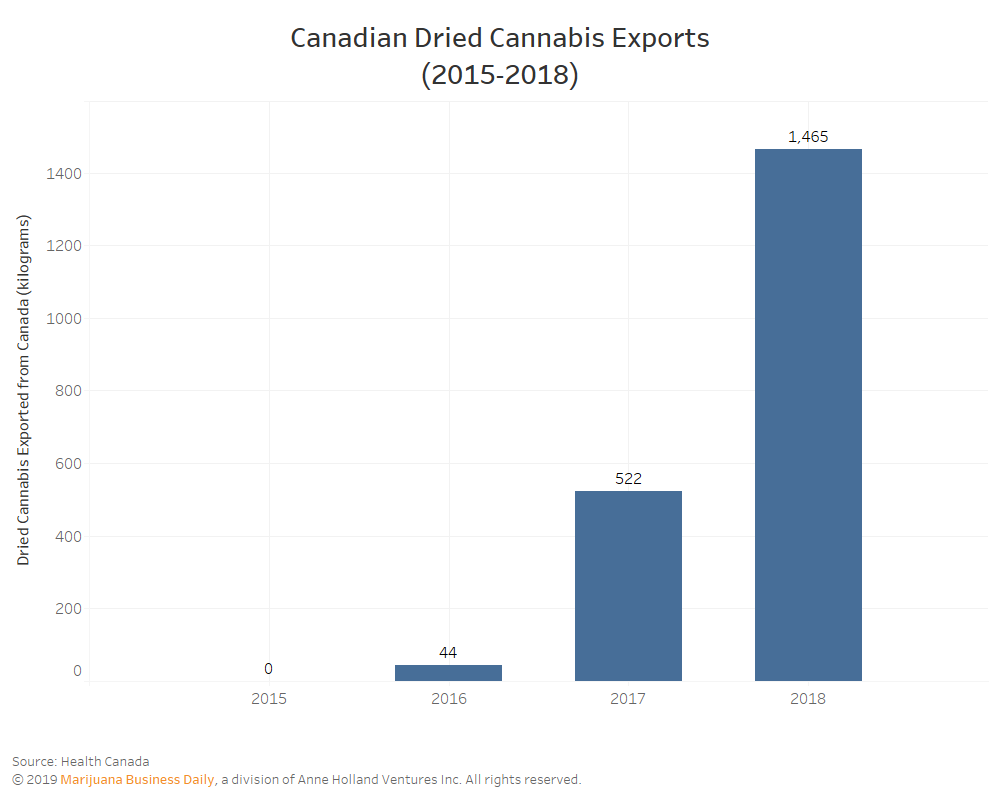Customer Nikki Rose and Canopy Growth CEO Bruce Linton showed off the receipt from the first purchase at Canopy’s Tweed retail outlet in St. John’s, Newfoundland and Labrador. (Photo courtesy of Canopy Growth)
Canada’s largest licensed cannabis producers already have a stranglehold on the country’s regulated recreational market just four months into legalization, according to analysts.
Canaccord Genuity estimates Canopy Growth and Aurora Cannabis combined represented almost 50% of the sales volume in the first three months of legalization.
“After including estimated contributions from Tilray and Aphria, we believe the top four (licensed producers) in the space could end up representing upwards of 70% of recreational volumes in the industry out of the gate,” Canaccord analyst Matt Bottomley wrote in a note to investors.
That dominance will prompt fierce competition for the remaining 30% of the market with more than 100 companies already licensed and another 840 in the licensing pipeline – plus new micro-cultivators later this year and licensed outdoor production entering the market in the fall.
New market opportunities will exist when regulations for edible cannabis, extracts and topicals come into force later this year.
CIBC World Markets, a subsidiary of the Canadian Imperial Bank of Commerce, expects earnings before interest, tax, depreciation and amortization (EBITDA) for Canadian cannabis companies in 2020 to reach roughly 1.2 billion Canadian dollars ($910 million).
But profitability for Canopy Growth, Aurora, Aphria and Tilray may be further down the line, according to Canaccord’s Bottomley.
“As we head into (calendar year) 2019, we expect producers to trend towards profitability … we believe EBITDA positive results could still be several quarters away in most cases,” he wrote.
A number of trends will play out in the industry in the coming months, Bottomley said, including:
- Possible investments from traditional companies that continue to circle the space.
- More Canadian licensed producers securing major U.S. listings (CannTrust shares will start trading on the New York Stock Exchange Feb. 25).
- The rollout of brick-and-mortar recreational stores will continue (and Ontario will get its first stores).
- Regulations go live in 2019 for edibles, extracts and topicals.
- Mergers and acquisitions will continue to be a major story in 2019.
Source of article: https://mjbizdaily.com/report-largest-marijuana-firms-already-control-most-of-canadas-adult-use-market/

















